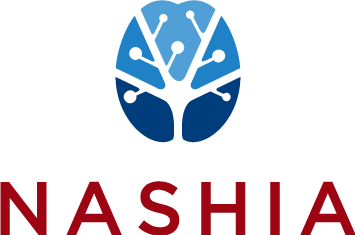NCOA Falls Prevention Awareness Week Toolkit
Falls among older adults continue to be a national public health concern. Join NCOA September 18-22, 2023 for Falls Prevention Awareness Week, a nationwide observance with state coalitions and partners to raise awareness on preventing falls, reducing the risk of falls, and helping older adults live without fear of falling.
Brain Injury – Enhancing Self-Directed Choice and Control
NASHIA, in partnership with Disability Technical Assistance Center (DETAC), has released Brain Injury – Enhancing Self-Directed Choice and Control, a resource on brain injury and employment targeted for Centers for Independent Living (CILs).
A Family Caregiver Guide to Selecting Rehabilitation Programs
This factsheet from the Model Systems Knowledge Translation Center Traumatic Brain Injury Model System, A Family Caregiver Guide to Selecting Rehabilitation Programs for Persons With Disorders of Consciousness (DoC), explains the medical and rehabilitation care needs of persons with disorders of consciousness (DoC). It discusses the questions to ask when searching for the right program for your loved one with a DoC.
DRNC TBI Justice Database
Disability Rights North Carolina (DRNC) has initiated the country’s first national database centralizing information on criminal legal system-related brain injury screening and supportive service programs, including pilots, academic studies, and projects from the past 30 years. Users will be able to search for reports about prior and ongoing TBI screening projects across the nation and for all population categories: juvenile justice, adult corrections, specialty courts, probation, and parole.
OSEP Fast Facts on Students with TBI Served Under IDEA, Part B
The Office of Special Education Programs released a new OSEP Fast Facts, which looks at Students Identified with a Traumatic Brain Injury. The document takes a closer look at data from the data collections authorized under IDEA Section 618, including those collected through child count, educational environments, discipline and exiting data collections with a lens on students identified with traumatic brain injury.
CARE Health Framework Intervention & Tools
The Ohio State University and the Ohio Domestic Violence Network published these two journal articles in the JHTR on the CARE approach, a framework that offers brain injury champions specific tools and strategies for working with survivors who may have experienced brain injuries that affect their ability to access services and resources they might need.
Concussion Awareness Now
Concussion Awareness Now brings together nearly twenty organizations that care deeply about brain injury. The coalition, and website, have been created to help people learn more about concussions. The campaign’s goal is to make sure that every person who sustains a concussion receives a diagnosis, the best possible care and the resources and information they need.
Modifying Psychopharmacologic Interventions for Traumatic Brain Injury
This brief, Modifying Psychopharmacologic Interventions for Traumatic Brain Injury, produced by ACL's Traumatic Brain Injury (TBI) Technical Assistance and Resource Center (TARC) provides clinicians with information and an array of accessible approaches for modifying psychopharmacologic interventions for TBI. This brief is also geared towards assisting brain injury personnel partners better with their behavioral health providers on best practices for TBI related interventions.
Return to School After Traumatic Brain Injury: Description of Implementation Settings
BACKGROUND: Returning to learn following a concussion is the process of managing a student’s recovery during the school day by implementation of academic supports with varying intensity. Due to a lack of consensus or even guidance on Return to Learn, this paper set out to establish cross discipline consensus on some essential elements of Return to Learn using a Delphi method.
Brief on Modifying Clinical Interventions for TBI
This brief of the ACL's Traumatic Brain Injury (TBI) Technical Assistance and Resource Center’s (TARC) Modifying Clinical Interventions for TBI highlights considerations and best practices for the diagnosis and treatment of behavioral health disorders in people with TBI. The brief also includes challenges related to brain injury and provides recommendations and strategies for clinical intervention.
Podcast - The Business Side of Things: Employment and Brain Injury
NASHIA Director of Professional Development Maria Crowley moderates a podcast from the Disability Employment TA Center. The podcast is a panel discussion from an employer perspective on challenges and successes in acquiring and maintaining employment. National labor market trends and practices are shared as well as challenges that business faces in hiring and job retention. Recommendations for those who have sustained brain injuries related to seeking employment are discussed, and a personal journey from injury to work is shared.
eLearning Series on Partner-Inflicted Brain Injury
The Center on Partner-Inflicted Brain Injury has developed a 7-part eLearning series on Strangulation, Traumatic Brain Injury, and Domestic Violence, for the domestic violence field and others who work with survivors of partner-inflicted brain injury. This is free and available for anyone and was designed to provide training to DV programs on brain injury and help them better understand why this issue is important in their work.
Job Retention After Brain Injury: Why It Makes Sense
Job Retention After Brain Injury: Why It Makes Sense. Blog post by Maria Crowley, NASHIA Director of Professional Development, on behalf of the Disability Employment TA Center.
Assessing Brain Injury Needs — While Keeping the Job Seeker Engaged
Assessing Brain Injury Needs — While Keeping the Job Seeker Engaged. Blog post by Jill Ferrington, NASHIA Technical Assistance Advisor, on behalf of the Disability Employment TA Center.
CDC TBI Prevention Initiatives
Published by the Centers for Disease Control and Prevention in 2022, this one-pager clarifies the CDC’s role within the TBI field while providing a broad overview of their research and programming.
ACL TBI-Technical Assistance and Resource Center’s Behavioral Health Guide
The Administration for Community Living (ACL) Traumatic Brain Injury (TBI) Technical Assistance and Resource Center’s (TARC) Behavioral Health Guide designed this guide to provide state brain injury professionals with the tools to effectively partner with their state behavioral health entities and improve outcomes for this population. The guide’s authors will provide an overview of the various sections and answer questions about applying some of the tools and strategies identified within a state system.
Establishing Consensus for Essential Elements in Returning to Learn Following a Concussion
Children who experience traumatic brain injury (TBI) of any severity may need accommodations when they return to school—the setting that manages academic achievement and learning. However, variations exist in current return to school (RTS) programs that address a child's transition to school following TBI. This article describes some of these return to school (RTS) programs and how they vary by setting.
Study: Do state supports for persons with brain injury affect outcomes in the 5 Years following acute rehabilitation?
The purpose of the current study was to investigate the effects of state-level resources and supports as an environmental factor influencing long-term outcomes from TBI using data from the TBI Model Systems. We examined the effects of U.S. state supports that specifically target people with TBI (federal funding for state brain injury programs, per capita revenue generated by brain injury trust funds, and expenditures for brain injury specific Medicaid waivers) and one measure of the relative quality of a state's Long-Term Services and Supports (LTSS) for all people with disabilities.
Providing and Receiving Respite Care Safely During the COVID-19 Pandemic
Voluntary national guidelines for respite care agencies, providers, family caregivers, and respite care recipients, with updated guidance on COVID-19 vaccinations, from the ARCH National Respite Network and Resource Center.
Article: How CARE Tools Are Being Used to Address Brain Injury and Behavioral Health Struggles with Survivors of Domestic Violence
The Ohio Domestic Violence Network is featured in this article in the JHTR: How CARE Tools Are Being Used to Address Brain Injury and Behavioral Health Struggles with Survivors of Domestic Violence.




















